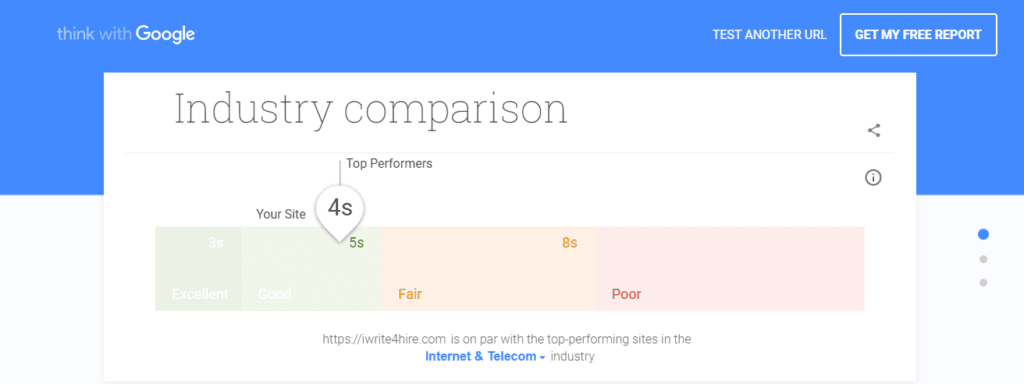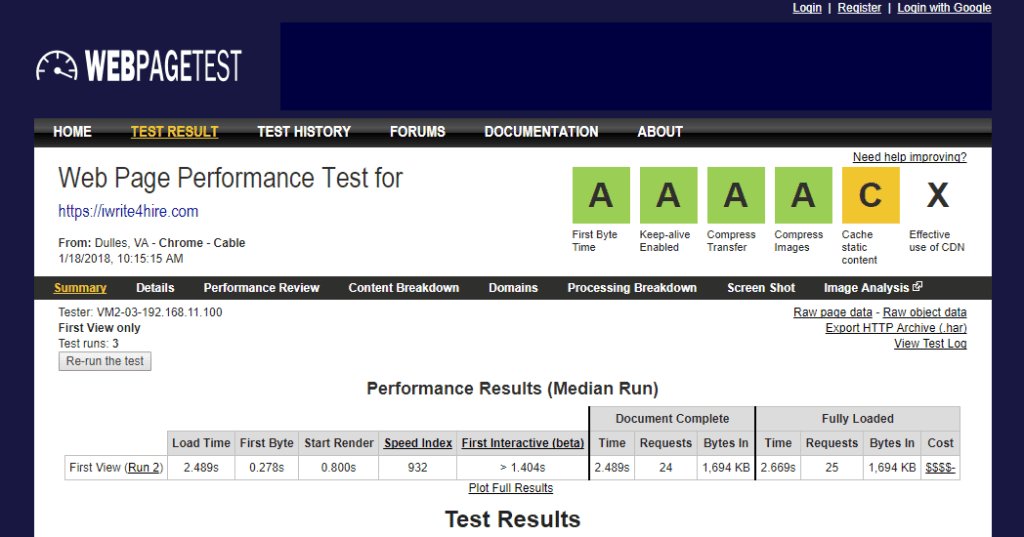Google announced that they WILL factor page load speed into search ranking for mobile results. According to the Google announcement:
“Page speed has been used in ranking for some time but that was largely for desktop searches. Starting in July 2018, page speed will be a ranking factor for mobile searches on Google as well.”
Let’s break this down and see why this is so important.
The Mobile Index and the Primary Index
With more and more people using mobile devices to search for information, the importance of mobile-friendly sites has grown over the past few years. In November 2014, Google even started labeling websites as ‘mobile-friendly.’ Then they gave more and more prominence to these sites until, by August 2016, most companies had received the message and Google dropped the label.
It now appears that Google’s next big push is for speed.
“The Speed Update, as we’re calling it, will only affect pages that deliver the slowest experience to users and will only affect a small percentage of queries. It applies the same standard to all pages, regardless of the technology used to build the page. The intent of the search query is still a very strong signal, so a slow page may still rank highly if it has great, relevant content.”
Understanding the Implications
“only affects pages that deliver the slowest experience”
“regardless of technology to build the page”
“may still rank if it has great, relevant content”
Let’s take a look at each of these qualifiers so you can determine if this new push for speed will affect your website. The first statement one is that the new speed requirements only affect the slowest pages.
What is a Slow Page Load Speed?
Research indicates that 53% of people leave a website when it takes more than 3 seconds to load. Google seems to feel that 5 seconds is the cut-off for top page load speeds.
Here is a screenshot of a website we ran using Google’s mobile speed test.

As you can see, the 4 seconds it took for this site to load on mobile put it into the Top Performer category for mobile sites. This is what you want for your site when Google starts using page load speed to determine search results.
If your site takes more than 5 seconds to load on either desktop or mobile, you should fix the issues as soon as possible in order to stay competitive on the internet.
What does technology have to do with page load speed?
It doesn’t matter if your site was custom built or designed using a website template. The big factors are image and text compression and your scripts. In addition to compression, there are also ways to leverage your cache that will significantly improve speed.
Your web developer should be able to optimize your site to fix any issues that are reducing your page load speed. Before now, this might not have been an issue, but with the changes, it is important that you check with them to make sure your page load speed falls under that 5-second cutoff that Google has set for Top Performers.
Content is King!
Granted, I am a bit biased since writing content is what I do. However, you heard it straight from the Google mouth. It is possible that a slow site will still rank if they have good content.
But, I would be the first to point out that the ideal scenario would be to have a fast website AND great content. Why not cement your place in the SERP by taking advantage of all the things Google (and every other search engine) thinks is important.
Action Plan for Improving Page Load Speeds
If you are like me, then you just want someone to tell you in plain English how to fix a problem. So, here you go.
First, you need to know if you meet the 5-second page load speed cut-off set by Google. Go HERE and test your site. Testing is free, and this service gives one of the most accurate measurements of page load speed that we have found.
If your speed is over 5 seconds, you should contact Effect Web Agency and ask them to give you Advanced Speed Optimization for your site.
If your page load speed was under 5 seconds, then you need to look at your scorecard in the upper right corner of your report.

As you can see, this was the site I showed you earlier. It is way beneath the 5-second page load speed requirement, but there are still things that can be done to improve it’s loading speed even more. This website does not use a content delivery network, and it also needs to leverage the cache of its static content.
Why is this important?
I happen to know that this is a small site with only about 45 indexed pages. There are no videos or animations. If they were to add those elements in the future, the page load speed would increase because they have not fully optimized the site for speed.
The takeaway here is that you should check page load speed first and then the scorecard. If you see room for improvement in either place, then you need to call Effect and ask for help with speed optimization.



